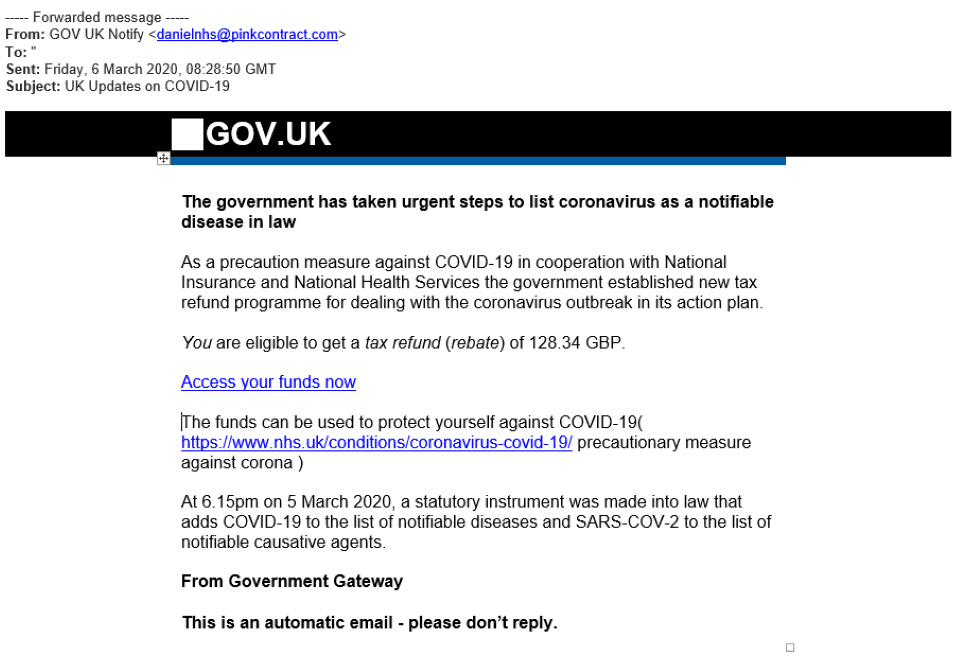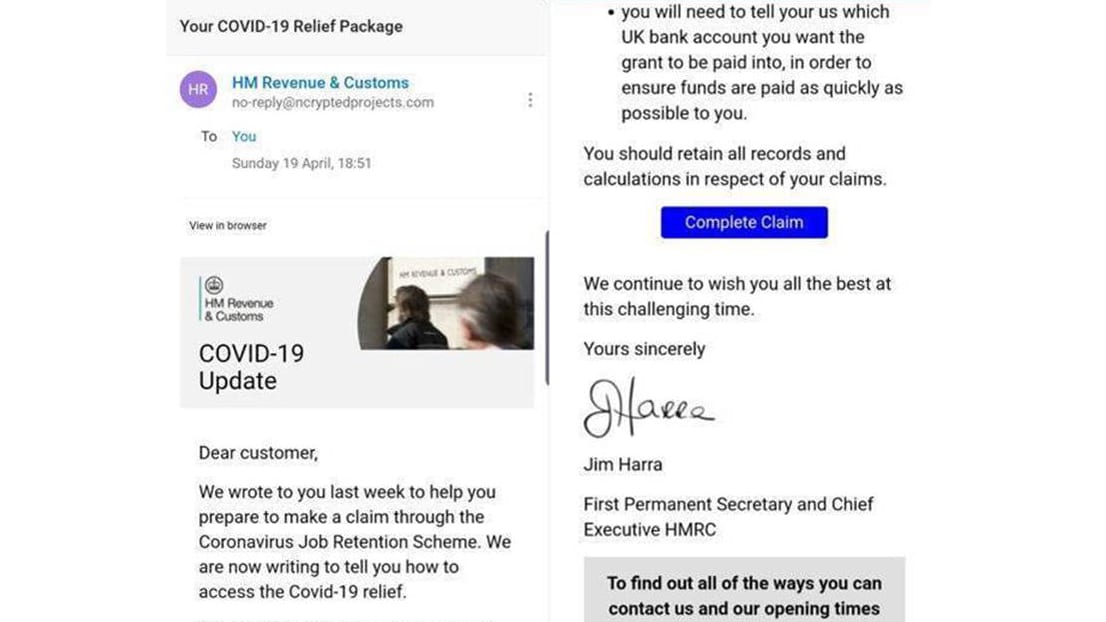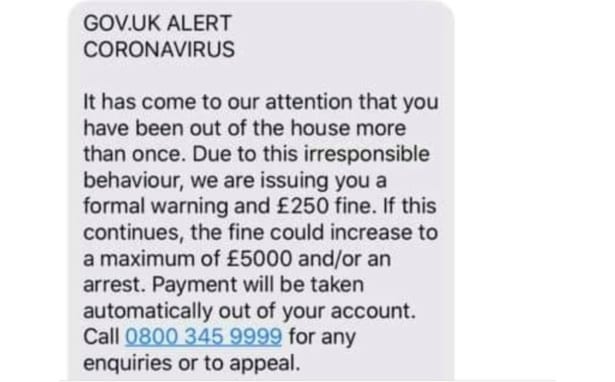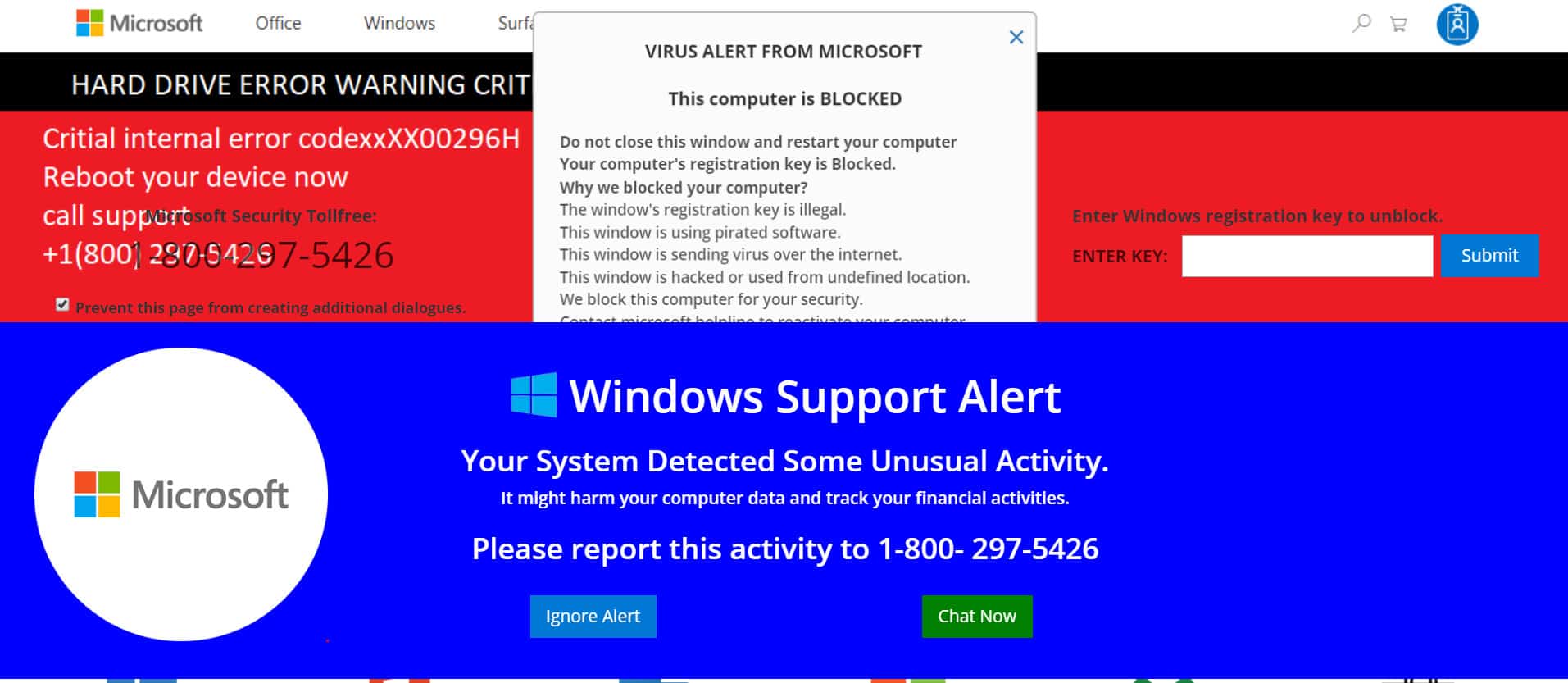In a time when we are relying on technology more than ever before for home working, we are being targeted by criminals who are using the Covid-19 pandemic for their own gain through coronavirus scams.
Criminals are utilising this worrying time to send coronavirus scams to users who are more susceptible and likely to click links as a means of seeking reassurance during the pandemic. Popular coronavirus scams include criminals impersonating government officials, trusted organisations, and well-known brands in order to put pressure on people to give out sensitive information or make payments.
In April, the UK’s National Cyber Security Centre (NCSC) launched their suspicious email reporting service, receiving more than 5000 reports within the first day relating to Covid-19. Plus, Action Fraud recently reported that there have been more than 2,521 victims of coronavirus scams with a combined, eye-watering loss of just over £8 million pounds. And that’s just in the UK alone.

NCSC IS TAKING ACTION
Experts at the NCSC have launched the cross-governmental ‘Cyber Aware’ campaign, which offers actionable advice for people to protect passwords, accounts, and devices. This is alongside a number of takedown services, which have already removed more than 2,000 online coronavirus scams in the last month, including:
fake online shops
selling fraudulent coronavirus-related items, hygiene items and PPE.
Malware Distribution
sites, set up to cause significant damage to anyone that visits them.
Phishing sites
seeking personal information such as passwords or credit card details.
Advance-fee frauds
where a large sum of money is promised in return for initial payment.
MOST PROLIFIC BUSINESS CORONAVIRUS SCAMS
1. Government & HMRC Scams
Due to the special funding and support put in place by the government criminals have quickly jumped on this to convince victims they can help. A business is contacted mostly through email by government imposters suggesting the business or individual might qualify for a special COVID-19 government grant or a tax refund.
These emails direct you to a fake website that collects your personal and financial details in return for a coronavirus related council tax rebate. These websites often display the HMRC or Gov.uk logo and use associated colour palettes so they appear legitimate.
Businesses should be cautious about unexpected urgent communications offering financial benefits or assistance, because although there are many schemes being offered to help people in difficulties, not all of them are genuine. You should always check that the information is genuine by using official government websites if you’re unsure.
2. The Job Retention Scheme Scam
Criminals are targeting senior managers in businesses claiming to be from HMRC in order to steal business bank details. In this instance, they require bank account details in order to make a job retention payment.
According to cyber experts, one website has already been taken down in relation to this scam, but now that the job retention scheme has been extended until October, cyber criminals have even more time to benefit from this scam, potentially extracting more information from targets.
Businesses are already struggling under the immense uncertainty and economic impact of Covid-19 so a scam like this could force a business into administration. The government will never contact you out of the blue and ask for sensitive information, if they do – they’re likely coronavirus scams.
3. Lockdown Fine Scam
HMRC were made aware of a SMS scam which uses the fear factor to scare employees into believing they have been caught breaching lockdown regulations having been tracked via their mobile phone.
These coronavirus scams state the individual will be fined and asks recipients to call an 0800 telephone number to appeal, which will likely lead them straight into the open arms of a cyber criminal who will kindly take a “reduced fine fee” instead.
While lockdown is being eased, this attack will be adapted in line with new government regulations because it’s a quick win for criminals.
So if you’re sent this, or something similar do not reply to the SMS or call the phone number listed
4. PPE scams
There have been thousands of coronavirus scams related to offers of PPE equipment or in-demand hygiene products like sanitiser gel and office steam cleaning. There are a number of fake websites selling products they will never ship and others that collect your card details.
These coronavirus scams are likely to ramp up in the coming weeks as lockdown measures are eased, and more businesses begin to ease workers into a gradual phased return to work. With safety and hygiene measures a top priority for businesses, it’s the perfect “in route” for scammers.
To avoid this, it’s important that you and your business only use trusted UK-based websites when preparing to equip staff for a return to the office.
5. Tech Scams
With more people working remotely and IT teams under pressure, criminals are impersonating well-known technology brands and offering free support, advice, repairs and even software or application deals.
In this scam, the criminals are trying to gain computer access or obtain passwords/login details.
Once they have access to remote devices, criminals can search for valuable or sensitive information and use it against you through ransomware or selling it on to other criminals.
THEY’RE NOT GOING AWAY – STAY ALERT
Criminals use every opportunity they can to take advantage of innocent victims. They will continue exploiting the pandemic with coronavirus scams until there’s nothing more for them to gain, and as we are unsure of when this will end, businesses should remain vigilant.
Make sure your remote devices and networks are up to date, and ensure you have robust technology in place to protect you from cyber threats like ransomware and phishing and alert you if a malicious link is clicked or you visit an unsecure site.
Even with the best security in place, some attacks will still get through, so ensure that staff remain suspicious of all types of communication that involve disclosing sensitive information. Train staff and make sure they understand how to report anything they’re wary of and train them to spot the warning signs of malicious intent.
Now more than ever businesses and employees must be vigilant and always act cautiously when dealing with unexpected, unfamiliar or urgency-related contact.
DON’T BE CAUGHT OUT BY CYBER CRIMINALS!
We’ve helped businesses of all sizes to beat cyber criminals by equipping them with industry-leading technology solutions and staff training as a holistic approach to cyber security. For advice and support on how we can help you to do the same, call us on 0333 150 6780, email or fill out the contact form below.










Recent Comments